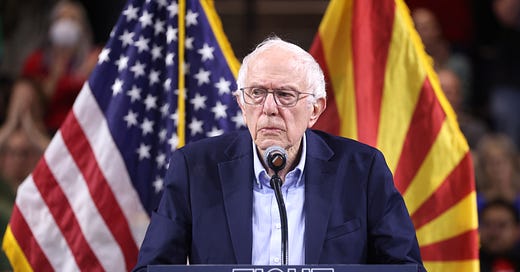America's Oligarchy Problem Goes Beyond Trump
For several years oligarchs in San Francisco have been trying to influence politics. They have made gains recently.
A charitable way to describe the Democratic Party since the Donald Trump’s victory in the November election is that they have struggled to find their sea legs. Many Democratic elected officials have been unable to develop either a message or strategy that inspires or mobilizes voters. A significant exception to this has been the relative success progres…
Keep reading with a 7-day free trial
Subscribe to Kibitzing with Lincoln to keep reading this post and get 7 days of free access to the full post archives.




